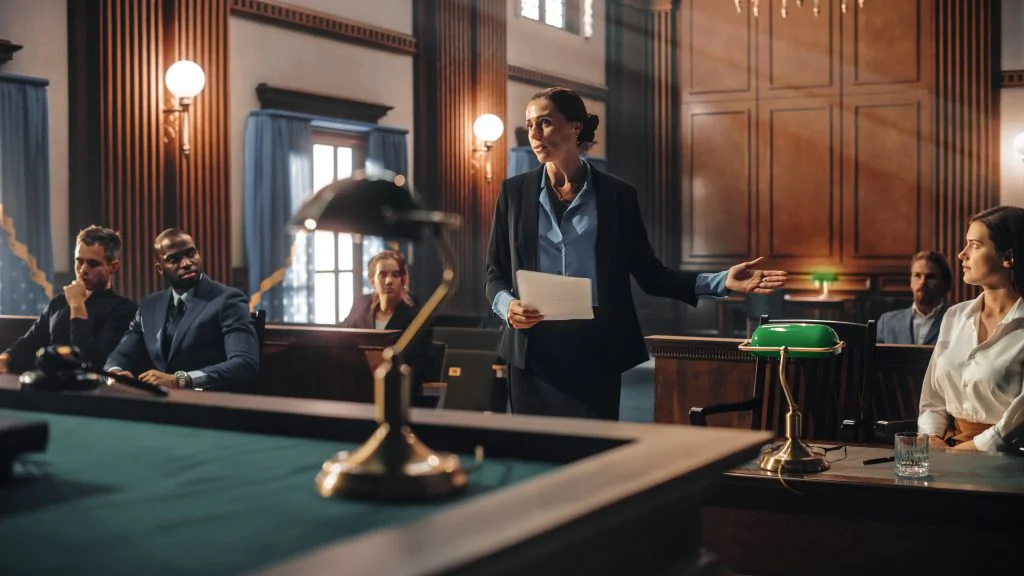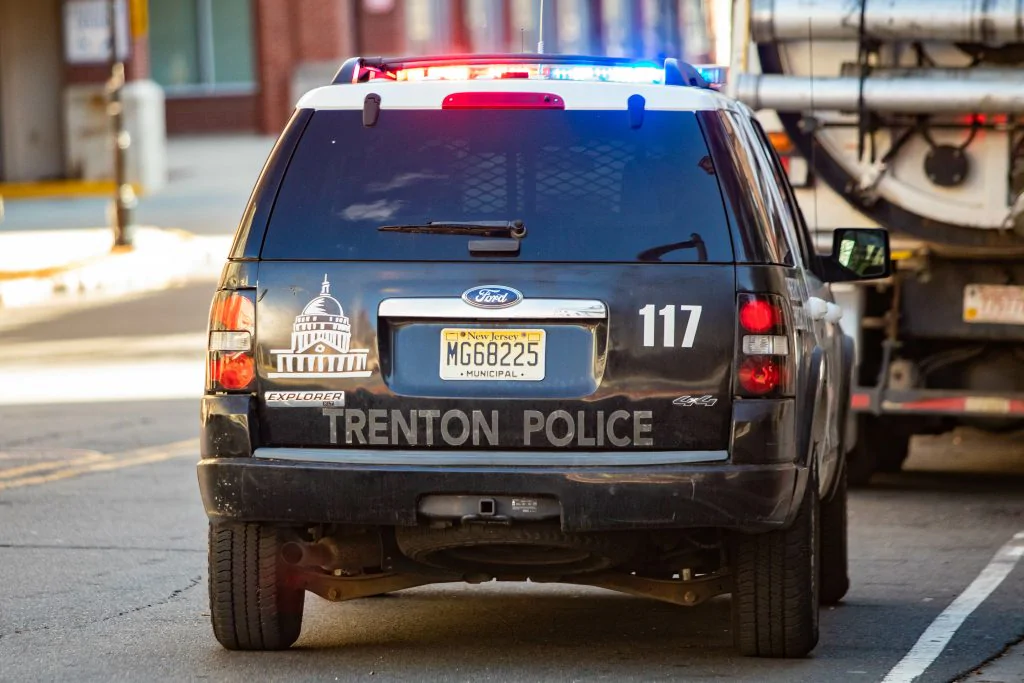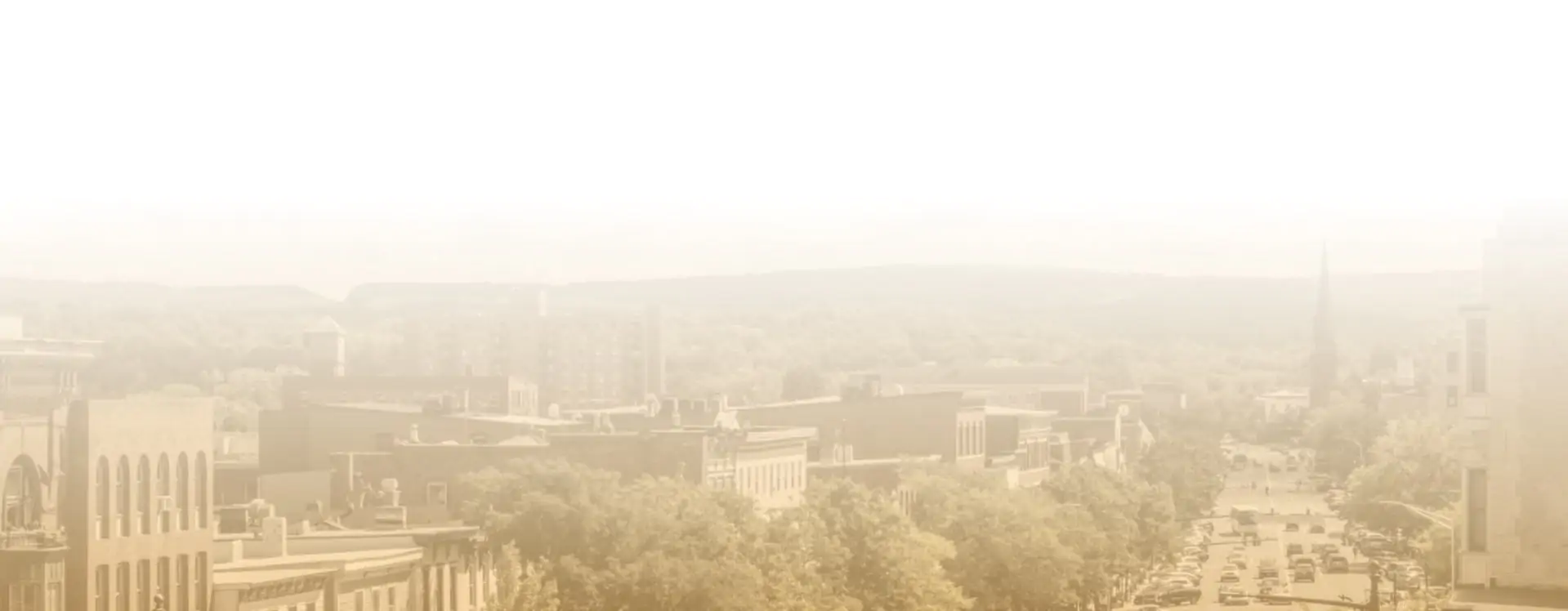Newark, NJ, the largest city in New Jersey, is bustling with traffic and various modes of transportation, making car accidents a frequent and unfortunate reality. This blog delves into city-specific auto accident statistics, city-specific roadway laws, the legal consequences for breaking these state laws, and how Newark residents can collect compensation for injuries caused by another driver or pedestrian’s negligence.
Most Common Car Accidents in Newark, NJ
- Rollovers: Vehicles overturning on their sides or roofs, often caused by sudden swerving or high-speed collisions.
- Head-on Collisions: Front-end crashes between two vehicles moving in opposite directions, typically resulting in severe injuries.
- Reckless Driving: Aggressive and careless driving, such as speeding, tailgating, and/or abrupt lane changes, leading to collisions.
- Single-car Accidents: Crashes involving only one vehicle, often caused by driver distraction, poor road conditions, or vehicle malfunctions.
- Driving While Impaired: Accidents caused by drivers operating vehicles under the influence of alcohol, drugs, or other substances.
- T-bone Accidents: Also known as side-impact collisions, these occur when the front of one vehicle strikes the side of another at a perpendicular angle.
- Highway Construction Accidents: Accidents that occur in construction zones, where roadwork and traffic diversions increase the risk of collisions.
- Pedestrian Accidents: Collisions between vehicles and pedestrians, resulting in severe injuries or fatalities for the pedestrian.
- Failure to Yield: Accidents caused when a driver fails to yield the right-of-way, leading to collisions at intersections or merging points.
When & Where Do Newark Auto Accidents Occur?
When: Car accidents in Newark can happen at any time, but certain periods pose a higher risk. The peak times for accidents are during rush hours, typically from 7:00 AM to 9:00 AM and 4:00 PM to 7:00 PM, as traffic congestion increases the likelihood of collisions. Weekends and holidays also see higher accident rates due to increased recreational travel and potential instances of driving under the influence.
Where: In Newark, certain locations have a higher frequency of car accidents. Intersections along major roadways, such as McCarter Highway (Route 21), Broad Street, and Raymond Boulevard are notorious accident hotspots. Additionally, highways like I-78 and I-280 witness significant accident numbers, especially during rush hours and adverse weather conditions.
Auto Injury & Fatality Statistics for The City of Newark
As per latest available data from the New Jersey Department of Transportation and NJ State Police:
- Total car accidents in Newark in the past year: 2,500
- Car accident-related injuries: 1,750
- Car accident-related fatalities: 35
- Percentage of accidents involving impaired driving: 20%
- Percentage of accidents involving reckless driving: 15%
- Percentage of accidents at intersections: 40%
- Percentage of accidents on highways: 25%
Most Common Accident Injuries in Newark
- Whiplash: Sudden back-and-forth motion of the neck due to rear-end collisions, leading to neck strain and pain.
- Fractured and Broken Bones: wrists, neck, and spine injuries caused by the impacts of collisions.
- Traumatic Brain Injuries (TBIs): Head injuries resulting from sudden acceleration or deceleration, leading to brain damage.
- Internal Bruising and Bleeding: The force of impact can cause internal injuries, which may go unnoticed initially, but require immediate medical attention.
- Cuts and Lacerations: Broken glass and debris from the collision can cause severe cuts and lacerations.
Car Accident Statute of Limitations in NJ
In New Jersey, the statute of limitations for injury cases—including car accident injuries—is generally two years from the date of the accident. This means that injured parties have a two-year window to file a lawsuit seeking compensation for their injuries. If the lawsuit is not filed within this timeframe, the court is likely to dismiss the case, and the injured party may lose the right to pursue compensation through the legal system.
Exceptions may be made to the state’s statute of limitations under the following circumstances:
The Discovery Rule
In some cases, injuries resulting from an accident may not be immediately apparent. To address this situation, New Jersey follows the “discovery rule.” The discovery rule allows the statute of limitations to start from the date when the injured party discovered, or reasonably should have discovered the injury. This rule ensures that individuals have a fair chance to pursue legal action even if they were unaware of the full extent of their injuries initially.
Statute of Limitations for Minors
For accidents involving minors (individuals under 18 years old), the statute of limitations is generally extended. The two-year time limit begins to run on the minor’s 18th birthday. However, it is essential to consult with an attorney to understand the specific details and exceptions that may apply in such cases.
Government Entities and Notice of Claim
When an accident involves a government entity such as a city, county, or state agency, the rules for filing a claim differ. Victims must typically file a notice of claim with the appropriate government entity within a shorter time frame, often ranging from thirty days to six months from the date of the accident. Failing to provide timely notice can result in the loss of the right to sue the negligent party for compensation.
Tolling & Extensions
Certain circumstances may toll (suspend) or extend the statute of limitations. For instance, if the injured party is mentally incapacitated, the statute of limitations may be tolled until they regain mental competence. Additionally, if the defendant leaves the state after the accident and before the lawsuit is filed, the time they are absent may not count toward the statute of limitations period.
Navigating the statute of limitations and understanding its nuances can be complex, especially when dealing with the aftermath of an accident and injuries. To protect their rights and ensure compliance with the relevant laws, accident victims are strongly encouraged to seek legal counsel promptly. An experienced personal injury attorney can evaluate the case, guide the injured party through the legal process, and ensure all necessary deadlines are met.
Newark Roadway Laws & Consequences
The City of Newark has specific roadway laws in place to ensure safety and the efficient flow of traffic. These laws include:
- Hands-Free Driving Law: In Newark, it is illegal to use a handheld electronic communication device while driving. This law aims to prevent distracted driving, reducing the risk of accidents caused by phone use. Violations can result in fines and points on your driving record.
- No U-Turn Zones: There are designated areas in Newark where U-turns are prohibited due to safety concerns. Drivers caught making U-turns in these zones may face fines and points on their driving record.
- Construction Zone Safety: Newark enforces strict traffic laws in construction zones to protect both motorists and workers. Speeding or reckless driving in these areas can result in enhanced fines and penalties.
- Bicyclist Safety Laws: Newark has laws to protect bicyclists, including minimum passing distance requirements and rules for sharing the road. Failure to adhere to these laws can lead to fines and legal liability in accidents involving cyclists.
- No Parking During Snow Emergencies: In the event of a snow emergency, Newark may declare specific streets as “Snow Emergency Routes,” prohibiting parking to facilitate snow removal operations. Violating these restrictions can result in fines and towing.
- Traffic Signal Compliance: Motorists must adhere to red, yellow, and green traffic signals, with penalties for running red lights or disregarding signals. Violations may lead to fines, points on the driving record, or even driver’s license suspension.
- Right-of-Way at Intersections: Drivers must yield to oncoming traffic and pedestrians where appropriate. Failure to yield can lead to accidents and legal liability for the driver at fault.
- Speed Limits: Speeding violations in NJ can result in fines upwards of thousands of dollars, points on driving records, and license suspension, depending on how fast a driver is going over the speed limit.
- School Zones: Newark imposes reduced speed limits in designated school zones during specified hours. Drivers must obey these lower speed limits to ensure the safety of schoolchildren and pedestrians.
- Seat Belt Laws: In Newark, both drivers and passengers must wear seat belts at all times. Failure to comply with seat belt laws can result in fines and points on the driving record.
- Parking Regulations: Specific regulations regarding parking including time-limited parking zones, no-parking zones, and metered parking. Violating these regulations may lead to fines and towing of the vehicle.
- Motor Vehicle Inspections: Vehicles in Newark must undergo regular inspections to ensure they meet safety and emissions standards. Failure to comply with inspection requirements can lead to fines and potential vehicle impoundment.
Is Insurance Required to Sue for Car Accidents in NJ?
Drivers in New Jersey do not necessarily need car insurance to sue someone for car accident damages. However, accident insurance plays a fundamental part in the State of New Jersey’s “no-fault” system, which requires each party’s insurance company responsible for covering any damages sustained in an accident—whether or not they are found to have caused the crash.
However, individuals may also file an injury lawsuit instead, which often results in settlements with 2-3 times the amount of compensation offered by insurance policies. Other factors that may affect whether or not you need insurance to file a car accident lawsuit in Newark includes:
No-Fault Insurance System
Under the no-fault insurance system in New Jersey, all drivers are required to carry personal injury protection (PIP) coverage as part of their auto insurance policy. PIP coverage provides benefits for medical expenses, lost wages, and other accident-related costs, regardless of who caused the accident. This system is intended to streamline the claims process and ensure that accident victims receive timely compensation from their insurance companies.
The Verbal Threshold Option
New Jersey allows drivers to choose between the “verbal threshold” and the “no limitation on lawsuit” options when selecting their insurance coverage. The verbal threshold, also known as the limited right to sue, restricts an individual’s ability to file a lawsuit for certain types of injuries unless they meet specific criteria. Under this option, an injured party can only sue for damages if their injuries fall into one of the following categories:
- Death
- Dismemberment
- Significant disfigurement or scarring
- Displaced fractures
- Loss of a fetus
- Permanent injury
No Limitation on Lawsuit Option
Alternatively, drivers can choose the “no limitation on lawsuit” option, also known as the unlimited right to sue. Opting for this coverage allows the injured party to file a lawsuit for any injury sustained in the accident, regardless of the severity or nature of the injuries. However, it is essential to note that selecting this option may result in higher insurance premiums.
Circumstances Requiring a Lawsuit (Instead of Insurance):
While the no-fault system is designed to handle most accident claims through insurance, there are situations where filing a lawsuit becomes necessary:
- Exceeding Insurance Coverage: If the costs of medical treatment, lost wages, or property damage exceed the limits of the at-fault driver’s insurance policy and the injured party’s own PIP coverage, a lawsuit may be necessary to seek additional compensation.
- Intentional or Reckless Behavior: If the accident resulted from intentional or reckless behavior on the part of the at-fault driver, the injured party may have grounds to file a lawsuit to pursue punitive damages in addition to standard compensation.
- Uninsured/Underinsured Motorists: If the at-fault driver does not have insurance or carries insufficient coverage, the injured party may need to sue their own insurance company under the uninsured/underinsured motorist coverage to recover damages.
Car Accident Attorneys in Newark, NJ
If you or a loved one have been a victim of a car accident in Newark, NJ, seeking legal assistance is crucial to ensure you receive fair compensation. Sobo & Sobo’s car accident attorneys have over 50 years of experience in winning settlements for car accident victims across the state of New Jersey.
Contact them for a free consultation by calling 855-468-7626, reaching them online, or by visiting their office located at 600 Mount Prospect Avenue, Newark, NJ 07104. Don’t let the aftermath of a car accident overwhelm you; let the experienced team of attorneys at Sobo & Sobo help you secure the compensation you deserve.




